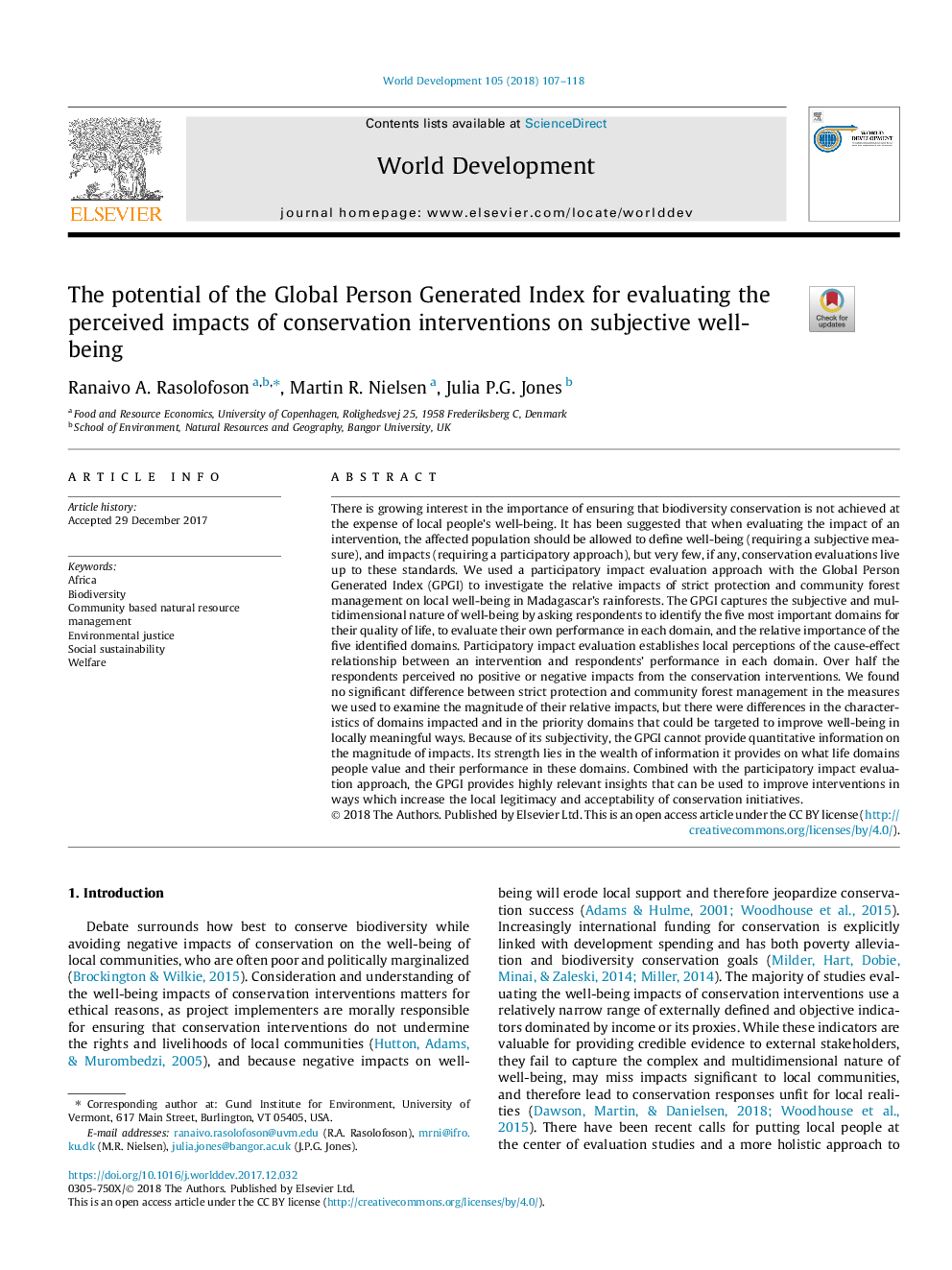ترجمه فارسی عنوان مقاله
پتانسیل شاخص تولید شده توسط فرد جهانی برای ارزیابی اثرات درک شده مداخلات حفاظت در برابر رفاه ذهنی
عنوان انگلیسی
The potential of the Global Person Generated Index for evaluating the perceived impacts of conservation interventions on subjective well-being
| کد مقاله | سال انتشار | تعداد صفحات مقاله انگلیسی |
|---|---|---|
| 121715 | 2018 | 12 صفحه PDF |
منبع

Publisher : Elsevier - Science Direct (الزویر - ساینس دایرکت)
Journal : World Development, Volume 105, May 2018, Pages 107-118
ترجمه کلمات کلیدی
آفریقا، تنوع زیستی، مدیریت منابع طبیعی بر اساس جامعه، عدالت محیطی، پایداری اجتماعی، رفاه،
کلمات کلیدی انگلیسی
Africa; Biodiversity; Community based natural resource management; Environmental justice; Social sustainability; Welfare;

